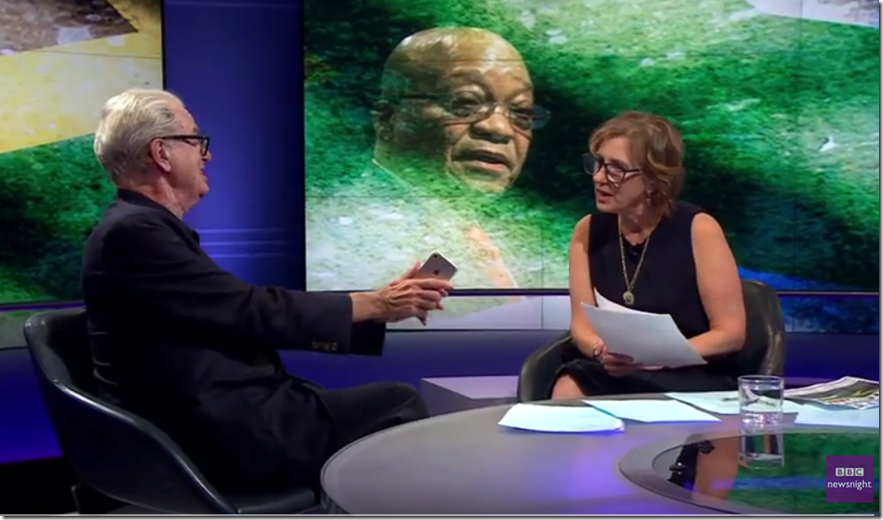Ignore The Reporter. Just State Your Message.
A few times a month, I meet new clients who tell me that a previous media trainer advised them to ignore reporters’ questions and just state their messages instead.
That advice is downright reckless, and I’m always stunned to hear that some media trainers still spout that nonsense. I know many of our media training competitors, and none of them recommend that approach. So where, exactly, is this coming from? (That’s an honest question – I really don’t know who is still selling that advice).
Perhaps it’s the lingering remnants of outdated media training advice from the 1970s and 1980s. Regardless of its source, it’s a still too-prevalent view that needs to be mercilessly stomped out of existence.
On this past Sunday’s Meet the Press, Michele Bachmann offered a perfect case study for why it’s a bad idea to ignore the questions.
Ms. Bachmann clearly came into the interview with this message: That President Obama “deceptively put” $105 billion dollars into his health care legislation and needs to give it back to the American people.
But she repeated that message eight times in five minutes, not even making the slightest pretense to answer the host’s questions:
David Gregory: “Are you willing to vote to shut down the government over some of these add-ons to these spending bills, to defund funding for the health care legislation, for Planned Parenthood, for the EPA?”
Michele Bachmann: “I think this deception that the President and Pelosi and Reid put forward with appropriating over $105 billion dollars needs to be given back to the people…”
Mr. Gregory: “Congresswoman, my question is a very direct one. Will you vote to shut down the government over those riders?”
Ms. Bachmann: “I think that President Obama needs to give back that $105 billion that they already appropriated.”
Ms. Bachmann could have very easily answered the question in a word or two before transitioning back to her message. And instead of simply parroting the same words eight times, she could have used different words to express the same idea. She lacked the deft touch required to remain on message without appearing evasive.
It’s unfortunate that Ms. Bachmann took this approach, because she did a perfectly good job of answering Mr. Gregory’s questions when she didn’t use that technique.
Most of the media trainers I know would agree with this advice: Don’t pull a Bachmann. Answer the question, but quickly and in a manner that does no harm. Then – and only then – transition to your message.
Related: Be On Message. But Not Like This Guy.
Related: Michele Bachmann’s Odd Tea Party Response



Hi there
When I read the title of this I was concerned about what you were actually advocating. But I totally agree. You absolutely cannot ignore the question. We always advise our trainees to acknowledge questions, then find a way to immediately turn their answers into an opportunity to deliver their key messages.
Ann
Hi Ann,
I agree, it’s concerning that there are still trainers out there advocating that method. Not only is it outdated, but it’s counter to everything great spokespersons are supposed to be – genuine, authentic, believable.
Thanks for leaving a comment, and keep up the good work!
Brad
Brad,
Agree — I have no idea who is dispensing that nonsense. I’ve also received tips from clients who have received derivative advice: “Address the question, but don’t answer. Then bridge to message.”
I’m with you on this one. Especially so in crisis communications. Answer the question, then get back to the messages you need to get across.
Cheers,
J.D.
Hi J.D.,
Thanks for mentioning the derivative advice you’ve heard – I hadn’t heard that one. What’s scary is that so many clients listen to these folks. For their sake, I hope the purveyors of this nonsense carry a good E&O policy.
Thanks for stopping by the blog!
Cheers,
Brad
I have to admit as well that the title did catch me off guard and had me worried. To that I have to say, Clever! Without even reading the post yet, I found myself frustrated with what was a very obnoxious Bachmann. The more robotic and repetitive she became, the more she lost credibility. In the end, I feel it hurt the message because it felt force fed.
Thanks for posting this Brad. It was very insightful.
Hi Andrew,
Thanks for your nice words. I plead guilty to a catchy title (first get their attention, then make your point), but am glad you read on long enough to see I was indeed making the opposite point!
I enjoy your Mr. Public Relations site (www.mrpublicrelations.blogspot.com) and encourage readers to check it out. In the meantime, thanks again for stopping by the blog and leaving a comment.
Be well,
Brad